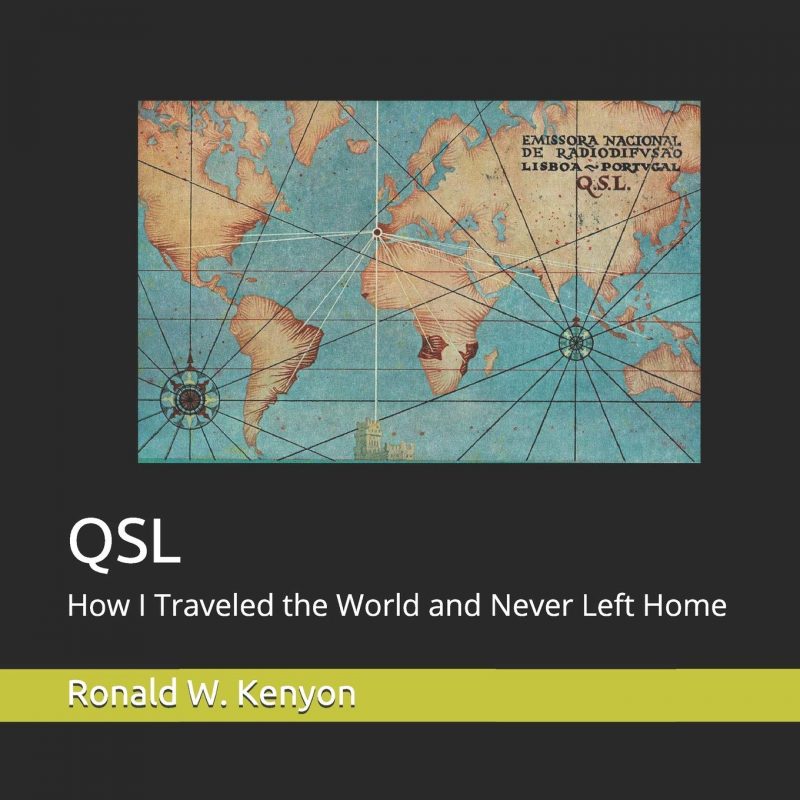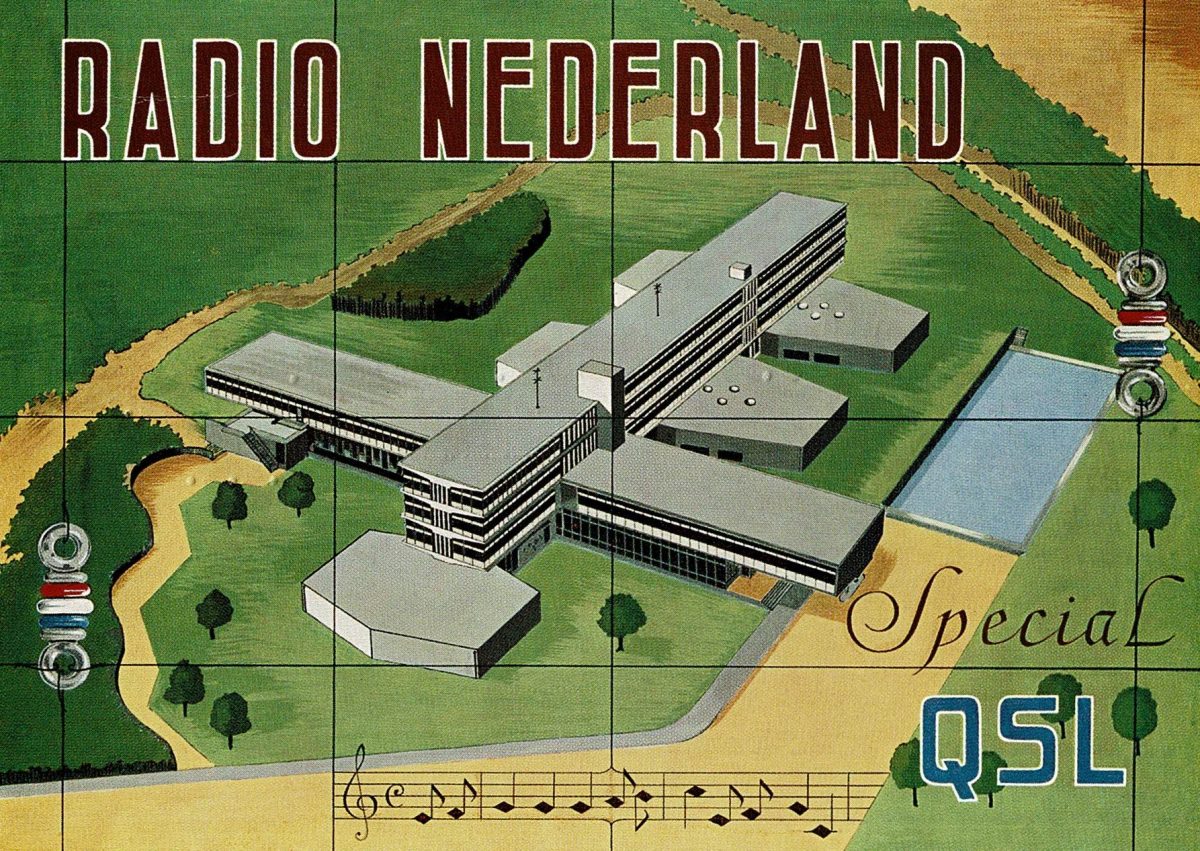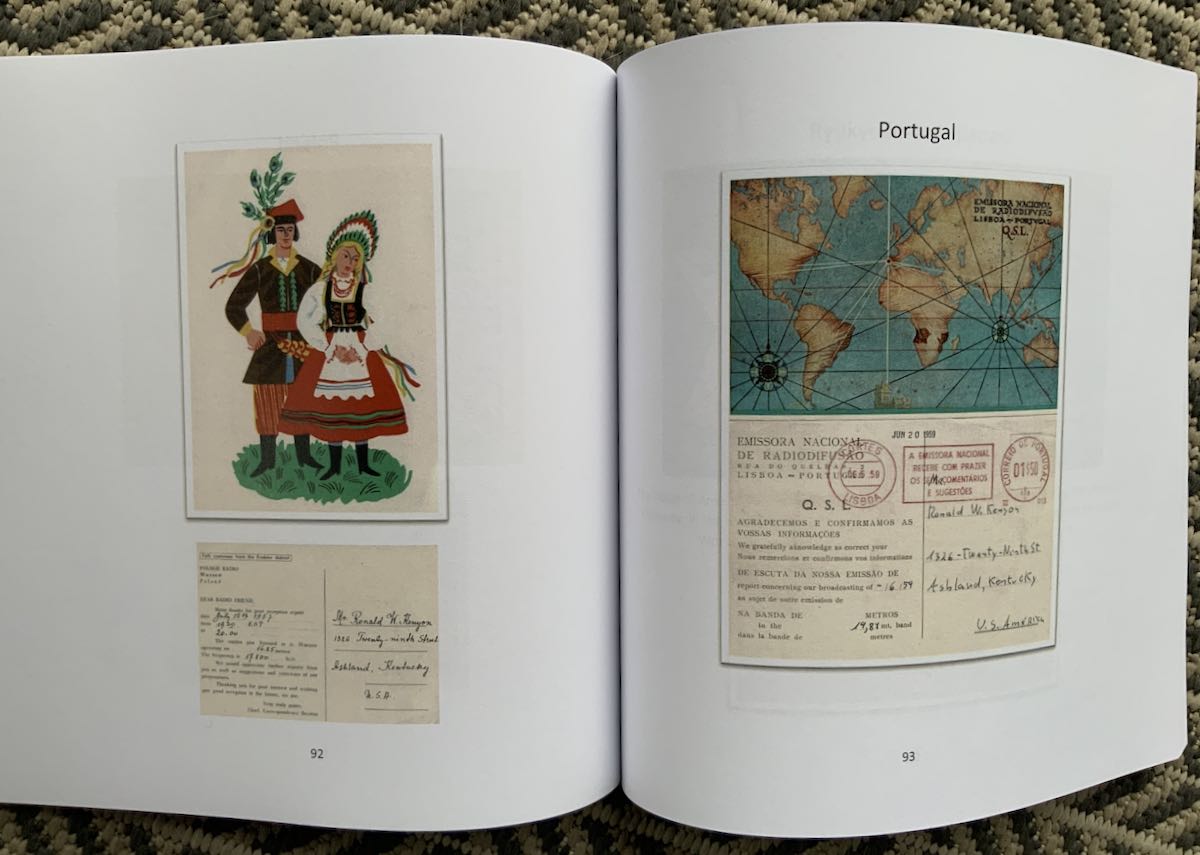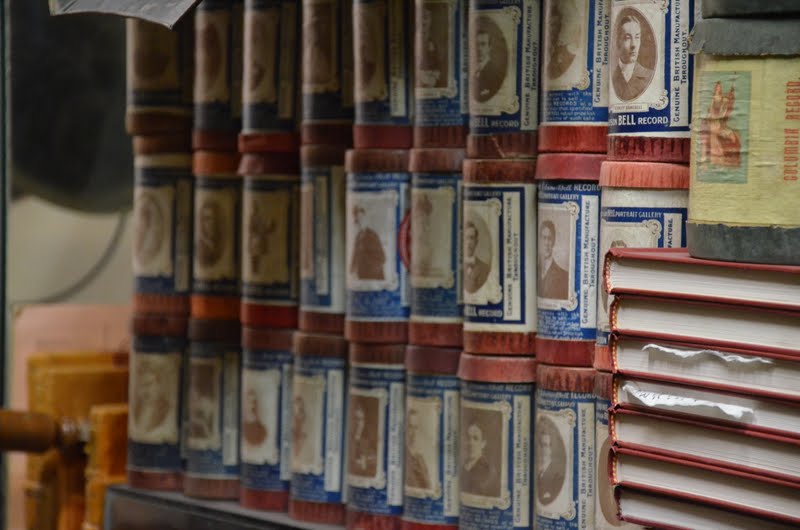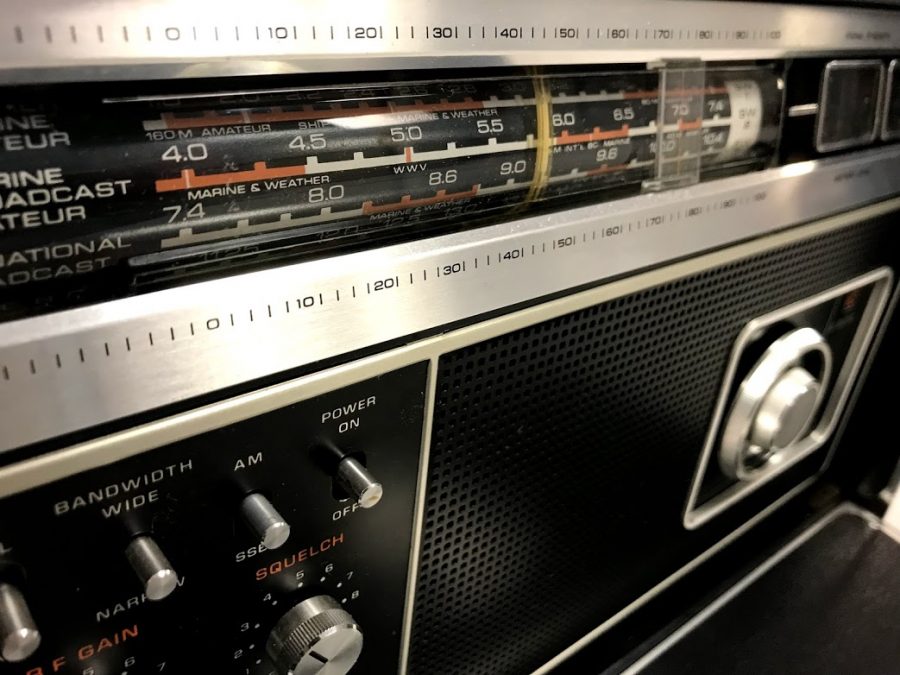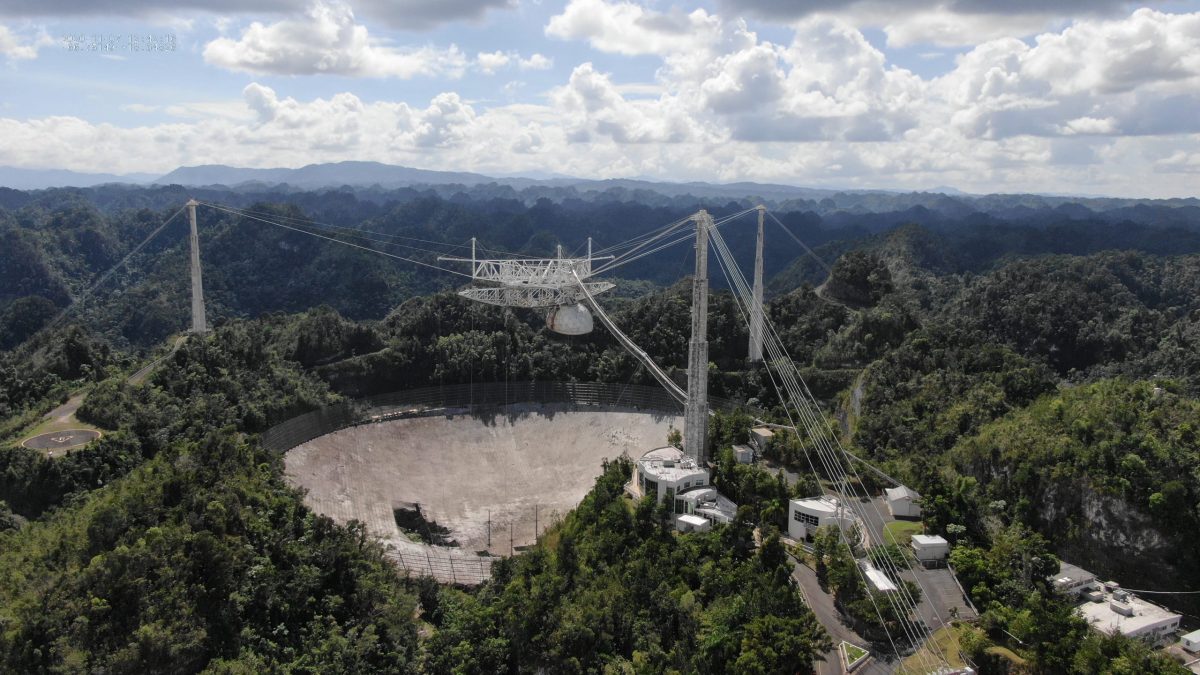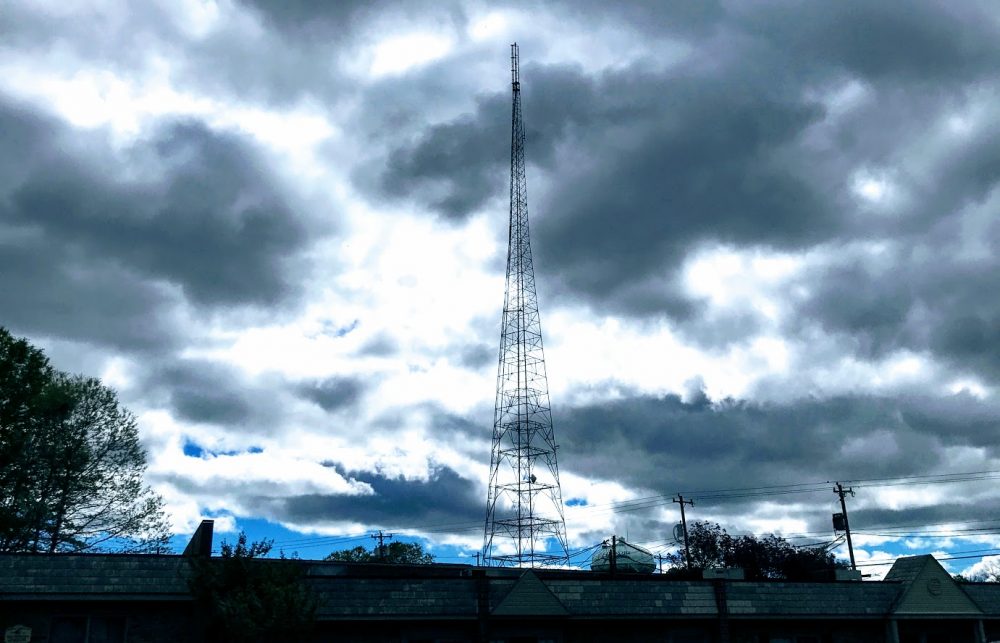
Radio Waves: Stories Making Waves in the World of Radio
Because I keep my ear to the waves, as well as receive many tips from others who do the same, I find myself privy to radio-related stories that might interest SWLing Post readers. To that end: Welcome to the SWLing Post’s Radio Waves, a collection of links to interesting stories making waves in the world of radio. Enjoy!
Many thanks to SWLing Post contributors Fred Waterer, Phillip Novak, Guy Atkins, Dan Robinson, and Eric McFadden for the following tips:
‘The wave she touches symbolizes the wave of social change that came for Canadian women in the storm of war’
A sculptor from Sudbury has unveiled his latest life-sized bronze statue in honour of the first woman to work as a wireless radio operator.
Canadian Fern Blodgett Sunde served on a Norwegian merchant ship, during WW II’s Battle of the Atlantic.
Tyler Fauvelle’s statue of Sunde also honours all Canadians who served during that time — and it was unveiled in Cobourg earlier this month, where Sunde grew up. Fauvelle’s work includes more than a dozen public art bronze monuments, four of which are military-themed.
“Fern’s clothing is very typical of what she wore as she carried out her duties as a wireless operator aboard the Mosdale,” Fauvelle said.
“The headphones slung around her neck symbolize her work and her profession. The pin on her lapel commemorate the sisterhood of Sparks who followed her to sea. The wave she touches symbolizes the wave of social change that came for Canadian women in the storm of war.”
In 1943, she was awarded the Norwegian War Medal, the first woman ever to receive the honour.
“It was a privilege to create this lasting tribute to Canadians of a monumental generation, the men and women who fought and supported a necessary war,” Fauvelle said.
“Thousands didn’t live to see the peace that their sacrifice bought, and they were on my mind as I sculpted the clay.”[…]
A regulatory “firewall” intended to protect Voice of America and its affiliated newsrooms from political interference in their journalism was swept aside late Monday night by the chief executive of the federal agency which oversees the government’s international broadcasters.
Michael Pack, a Trump appointee who assumed leadership of the U.S. Agency for Global Media in June, wrote that he acted to eliminate policies that were “harmful to the agency and the U.S. national interest.” And Pack argued they had interfered with his mandate “to support the foreign policy of the United States.”
Pack has already come under fire for revelations that his senior aides investigated the agency’s journalists for bias against President Trump and pushed for their dismissals and reassignments, in seeming violation of the rules he has now rescinded, effective immediately.
“The key to the credibility of any news organization is editorial independence and adherence to the professional standards of journalism,” said David Kligerman, whom Pack suspended as the agency’s general counsel in August.
Kligerman was the chief author of the regulation which Pack just killed. It was supported by the agency’s bipartisan board, which was dissolved upon Pack’s confirmation. Kligerman is also among a group of a half-dozen whistleblowers who have come forward to challenge Pack’s actions since he arrived in June.
“The firewall protects the networks by insulating their editorial decisions from political interference,” Kligerman said. “That is what differentiates the Voice of America and the other USAGM-funded networks from the state-sponsored propaganda of Russia, China, Iran and others.”[…]
Also see: VOA Reporter Apologizes for Halloween Tweet That Sparked Wave of Anti-Trump Comments (BBG Watch)
November 2, 2020 marks the centennial of radio station KDKA going on the air for the first time. Their first broadcast, considered by many to be the birth of commercial broadcast radio, was to report the election results of the Harding-Cox presidential race. KDKA has been on the air continuously ever since.
To celebrate this historic milestone, Pittsburgh area amateur radio operators, also known as hams, will take to the airwaves with a series of special event stations. Their goal is to contact as many other ham radio operators across the United States and around the world. They will be celebrating the centennial of KDKA for the entire month of November.
KDKA originally began operations in 1916 as an amateur radio station, call sign 8XK, operated by Dr. Frank Conrad, Assistant Chief Engineer of Westinghouse Electric and Manufacturing Company. During World War I, amateur radio operations were ordered to be suspended because of national security concerns. After the war, the operators reorganized the station as a commercial AM radio station. The first transmissions of KDKA were from a makeshift studio on a roof of the Westinghouse K Building in East Pittsburgh.
Ham radio clubs participating in the centennial special event include the North Hills Amateur Radio Club in Pittsburgh, which is planning to operate from II-VI Incorporated located in Saxonburg, Pennsylvania, the former KDKA transmitter site from 1931 to 1939. One of the original tower piers still stands on the property to this day. Another operating location is being planned at the Westinghouse Lodge in Forest Hills, located about ten miles east in suburban Pittsburgh, which was the former KDKA transmitter site from 1923 to 1930.
Other Pittsburgh area ham radio clubs planning operations include the Panther Amateur Radio Club in addition to a joint operation planned between the Steel City Amateur Radio Club and the Wireless Association of South Hills. Outside of Pittsburgh, other ham radio clubs planning operations are The Skyview Radio Society in New Kensington, Pennsylvania, which will operate from their clubhouse, in addition to the Butler County Amateur Radio Public Servce Group in Butler, Pennsylvania, and the Washington Amateur Communications Radio Club in Washington, Pennsylvania. Individual radio amateurs will also be operating from their home stations. In addition, there is a small group of ham radio operators planning portable field operations from South Park in suburban Pittsburgh.
“More than one hundred years ago, many experimenters started delving into a new technology known as wireless, or radio,” said Bob Bastone, WC3O, Radio Officer for the Skyview Radio Society in New Kensington, Pennsylvania. Bastone explained that many of those early pioneers were radio amateurs. “One hundred plus years later, many amateur radio operators are still contributing to wireless technology while also serving their communities and enhancing international goodwill. Congratulations to KDKA Radio, also known in the early years as amateur radio stations 8XK, 8ZZ, and W8XK.”
Bastone said that the special event stations will exchange post cards, called QSL cards, with hams who confirm radio contacts with them.
A commemorative QSL card has been produced with artwork designed by the graphic arts department at KDKA Radio. “We amateur radio operators look forward to contacting thousands of other hams around the world to celebrate this huge milestone in the commercial broadcasting industry,” said Bastone.
The KDKA amateur radio special event stations, operating with call signs K3A, K3D, K3K, and W8XK will be set up at several locations in Pennsylvania during November, inviting the public to come visit while observing the required social distancing protocols. “The special event stations will also help demonstrate ham radio to our communities while our volunteers practice operating skills and station readiness,” said Robert Mente, NU3Q, Emergency Coordinator for the Allegheny County Amateur Radio Emergency Service (ARES). He and his fellow volunteers log many hours each year providing public service and practicing their emergency communications capability. The group provides communication services for The Pittsburgh Marathon, Race for the Cure, the Pittsburgh Vintage Grand Prix, the Great Race, and the American Diabetes Tour de Cure in addition to providing communication support for the American Red Cross and the Pittsburgh National Weather Service office.
For more information about the KDKA centennial and a schedule for the ham radio special event stations including locations, operating frequencies, and how to obtain a commemorative certificate, visit www.kdka100.org and www.qrz.com/db/w8xk. Information is also available in the Special Events Station section both on the ARRL website and in QST Magazine.
We wish to thank II-VI (pronounced two-six) for the use of their corporate facilities in Saxonburg, PA, on the very site where KDKA used to broadcast from for most of the 1930s. II-VI is a global leader in engineered materials and optoelectronic components. For nearly 50 years, they have manufactured innovative products for applications in the industrial, communications, aerospace & defense, life sciences, semiconductor capital equipment, automotive, and consumer markets. Learn more at ii-vi.com.
ARRL, the national association for Amateur Radio® in the US, has information on becoming a ham radio operator:
www.arrl.org/what-is-ham-radio.
Tracking Murder Hornets with Wireless Tech (Multiple Sources via Guy Atkins)
Here is a story a lot of people in my state have been following for a few weeks. It culminated last Saturday with the identification of a nest of so-called “Murder Hornets”. The big break in finding the nest came recently when a radio-tagged hornet led researchers to the actual hive or nest.
https://www.geekwire.com/2020/uw-researcher-put-tiny-tracking-technology-giant-hornets-help-state-deal-murderous-pest/
This link from our local paper shows the hornet eradication in action. Check out the alien-like protective suits! https://www.seattletimes.com/seattle-news/scientists-remove-98-murder-hornets-in-washington-state/
[Check out] the picture of the hornet next to the ruler, to see the size of these nasties: https://www.geekwire.com/2020/using-radio-trackers-scientists-finally-locate-murder-hornet-nest-washington-state/
Do you enjoy the SWLing Post?
Please consider supporting us via Patreon or our Coffee Fund!
Your support makes articles like this one possible. Thank you!


